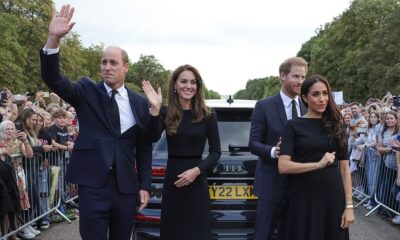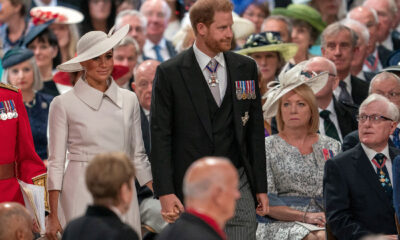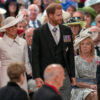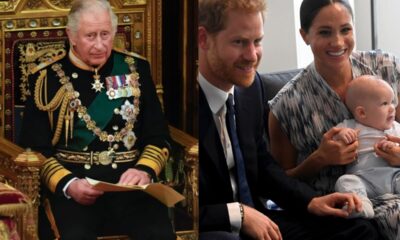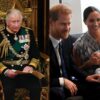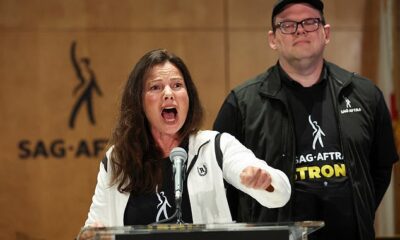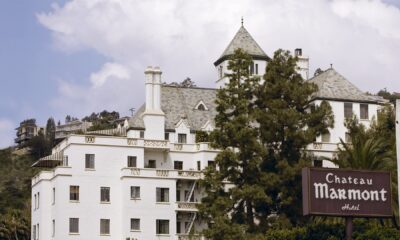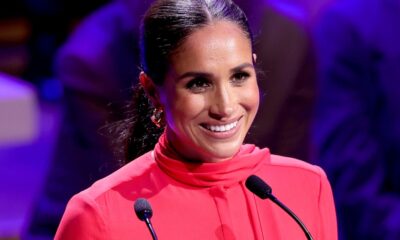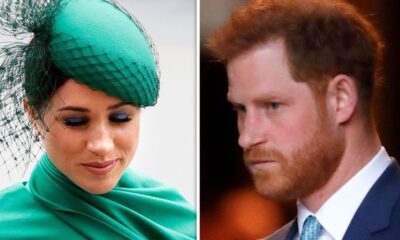Royal Family News
BBC receives over 100,000 complaints over Prince Philip coverage
The BBC has received a record-breaking 110,994 complaints from members of the public over its coverage of the Duke of Edinburgh's demise.
Following the announcement that the Duke of Edinburgh had died on Friday, the BBC rescheduled its regular programming to make space for special news bulletins and tributes.
After stations screened blanket coverage of Prince Philip's passing, viewers turned off their televisions in droves, according to viewing estimates released on Saturday, and the BBC got so many complaints that it created a dedicated complaints form on its website.
According to a Deadline review of audience numbers, BBC One, which is usually the channel that Britons switch to at times of national importance, was down 6% from the previous week. The decision backfired for BBC Two, since the channel lost two-thirds of its viewers, with just 340,000 people tuning in between 7 and 11 p.m. ITV's ratings plummeted after it canceled its Friday night program to air tributes to the Duke of Edinburgh.
BBC Four viewers were met with a warning telling them to change channels for a “major news report,” while BBC Radio 4 and BBC Radio 5 Live both broadcast programs concerning the Duke of Edinburgh.
His death was widely reported around the globe, but many Britons were disappointed that their beloved BBC television and radio programs had been disrupted or delayed.
Trending:
The previous record was 63,000 complaints in 2005, when the BBC screened Jerry Springer: The Musical. And Russell Brand's hoax call to actor Andrew Sachs, also received 42,000 complaints in 2008.
The BBC's coverage of his death has been the most widely criticized topic in its history.
EastEnders and the MasterChef final were substituted by news programs, and BBC Four was entirely removed from the airwaves.
“Why [not] just put it on one channel for those that want to listen to that drivel and the rest of us can have a bit of music,” one complaint seen by The Guardian said.
The majority of the concerns regarding Prince Philip centered on the excessive amount of material, while The Guardian claimed that 400 people had complained about Prince Andrew being seen in videos.
According to The Guardian, 233 people complained that BBC hosts were not dressing appropriately enough when it came to Prince Philip, and 116 people complained that the BBC made it too convenient to complain about its coverage.
“We are proud of our coverage and the role we play during moments of national significance,” a BBC spokesperson said.
The company previously stated its fortnightly complaints bulletin will be released on Thursday, as scheduled.
The BBC's national radio stations broadcast a pre-recorded salute, with several stations subsequently returning to unique “sombre” songs: Radio 1 broadcast downbeat music interspersed with warnings that it might “sound a bit different.”
ITV and Channel 4 all broadcast prolonged television coverage in response to Prince Philip's passing, so the BBC was not unique in changing its programme.
However, as the day progressed, many audiences drifted away, with ITV's Friday night viewership down by 60% from the previous week, according to overnight estimates.
The duke's death was regarded as an international matter outside the UK and many Commonwealth nations, with most media outlets reporting on British reactions to the story, while broadcasters and newspapers in Australia and New Zealand provided extensive attention to the death of their monarch's consort.
The ABC, Australia's state-owned broadcaster, incorporated black dressed presenters into its daily programming. The Sydney Morning Herald and The Age, on the other hand, retained plenty of their regular coverage, including photos of the Duke of Edinburgh on their front pages.
Simon McCoy, a former BBC host who recently quit to join GB News, was among those who criticized the company.
On Twitter, he wrote: “BBC1 and BBC2 showing the same thing. And presumably the News Channel too. Why? I know this is a huge event. But surely the public deserve a choice of programming.”
Top stories:




